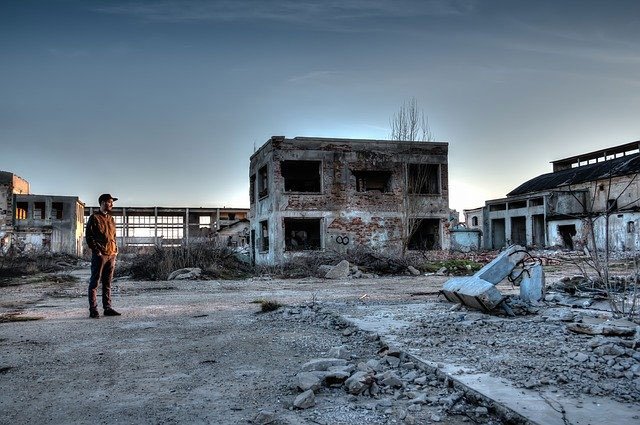From the Stone Age to the two World Wars, all the way to Modern Warfare – conflict has existed since the beginning of time and, with it, the need for people who can make possible the communication between the belligerents. A conflict zone is usually defined as an area of “extreme violence”, positioned between the borders of the conflicting countries, which, essentially, brings up the need for facilitating effective communication with locals and the military. Therefore, the work that translators and interpreters engage in during war is of crucial importance at every stage of the events accompanying military actions. Whether to help rescue hostages, establish the communication between troops, or lead political negotiations, interpreters and translators are at the core of global business and political communication in times of war, despite the fact that their efforts often go unappreciated.
Translate while your life depends on it
Interpreters’ role as correspondents is invaluable when governments try to establish communication with each other. By being put at the scene of events, however, where their communication skills are most needed, the life and safety of translators are in danger. Living and working under a constant death threat can impose enormous amounts of stress on an individual, something no one can be prepared for. The translators’ only weapon is their knowledge – they cannot protect themselves from the physical dangers of the environment they live in, and, what’s more, they are not under the type of protection that military doctors and journalists receive. It takes a lot of bravery and commitment to the cause in order to be a translator in a place taken by war.
Ethics and integrity in War Translation and Interpretation
 Putting aside the possibility of being physically harmed or even killed, war translators and interpreters face various ethical and moral challenges. Those people, while oftentimes non-professional linguists, are required to remain impartial in their work and refrain from expressing any personal beliefs or sympathies. That being said, interpreters’ skills can still be wrongfully abused by organisations or political regimes to push ahead certain messages that could change the course of the negotiations. A translator cannot consciously misinterpret the nature of the interactions for personal or organizational gain, since this will seriously affect the outcome of the war and would have consequences on people’s lives.
Putting aside the possibility of being physically harmed or even killed, war translators and interpreters face various ethical and moral challenges. Those people, while oftentimes non-professional linguists, are required to remain impartial in their work and refrain from expressing any personal beliefs or sympathies. That being said, interpreters’ skills can still be wrongfully abused by organisations or political regimes to push ahead certain messages that could change the course of the negotiations. A translator cannot consciously misinterpret the nature of the interactions for personal or organizational gain, since this will seriously affect the outcome of the war and would have consequences on people’s lives.
Neutrality and objectivity are terms difficult to define in a high-risk environment. While a war interpreter may simply be a local person with knowledge of the language, whose well-being and that of their family depends on performing the job, they can still be seen by other civilians as traitors, working on the side of the soldiers or the opposing political force. The line between being neutral and representing the voices of those who have hired you to perform the translation can be very fine – oftentimes, even non-existent to the side observers. In their effort to try and communicate meaning in the most cohesive manner, translators are often targeted by accusations and doubted from both sides.
The rights of the war zone linguists
In an ideal world, there would be no conflict zones where translators’ skills would be required and we won’t have to fight for basic human rights and protection of those working on the border between life and death.
However, while wars and military conflicts still exist, the services of translators will remain a vital part of maintaining national security during times of conflict. International organizations such as Red T and No One Left Behind have been busy promoting the safety of linguists in adversarial settings, fighting to ensure that they are provided with the same treatment as war journalists, who are granted specific protection under international law. The success of these organizations would mean higher levels of awareness amongst the population of the dangers involved and the importance of translators within areas of conflict. It is important to realize that wars are led not only by weapon and force but by negotiations and cohesive communication, which wouldn’t be possible if there is a language barrier between the sides.
